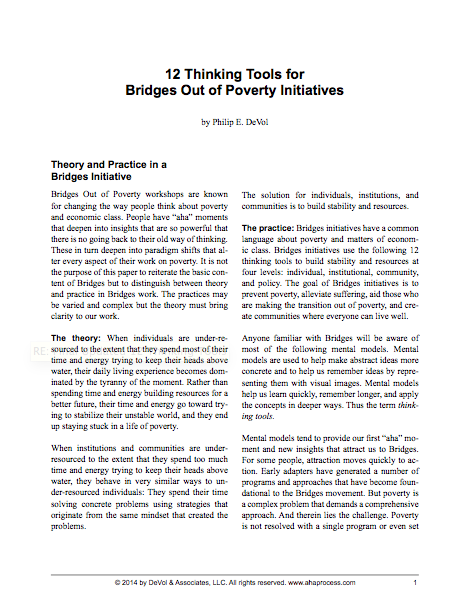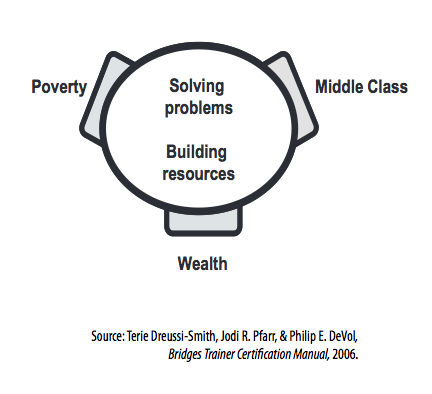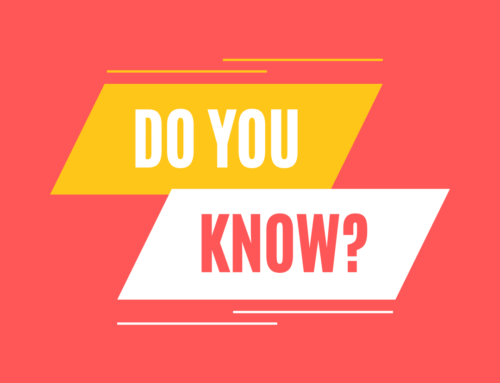 “12 Thinking Tools for Bridges Out of Poverty Communities” by Philip DeVol is being presented in 12 separate blogs. The paper is for people who are already using Bridges concepts and want to deepen the work of their community collaboratives. Poverty is becoming increasing complex, requiring not only a new mindset but new tools that lead to out of the bubble solutions.
“12 Thinking Tools for Bridges Out of Poverty Communities” by Philip DeVol is being presented in 12 separate blogs. The paper is for people who are already using Bridges concepts and want to deepen the work of their community collaboratives. Poverty is becoming increasing complex, requiring not only a new mindset but new tools that lead to out of the bubble solutions.
The fourth tool in the series outlines the concept of possessing “three classes (i.e. poverty, middle and wealth) at the table.”
Per DeVol, “People in poverty are very rarely at the planing and decision-making tables, even when poverty is the issue. The middle class and wealthy have normalized their role as decision makers so thoroughly that invariable they default to taking charge automatically.” This “rankism” leaves those in poverty on the outside of important discussions.
The information that those in poverty possess is vital for planning, suggests DeVol. “They have concrete knowledge of the environment of poverty, the barriers that they encounter when they navigate the systems set up by institutions, and the barriers to upward mobility that exist in the community.”
- Utilize Getting Ahead as an engagement tool. Begin engaging investigators when deciding when and where to conduct the classes. Share the work of making it a successful learning experience. Plan the graduation together and design the follow-up programs and problem-solving strategies together.
- The percentage of people from poverty at the planning table should be at least 25%.
- Provide to the people from poverty the same opportunities that you offer to anyone else to attend leadership courses, board trainings, and national conferences.
To gain further understanding, please read the full segment on this concept here.
Phil DeVol is co-author of Bridges Out of Poverty: Strategies for Professionals and Communities and author of Getting Ahead in a Just-Gettin’-by-World.









